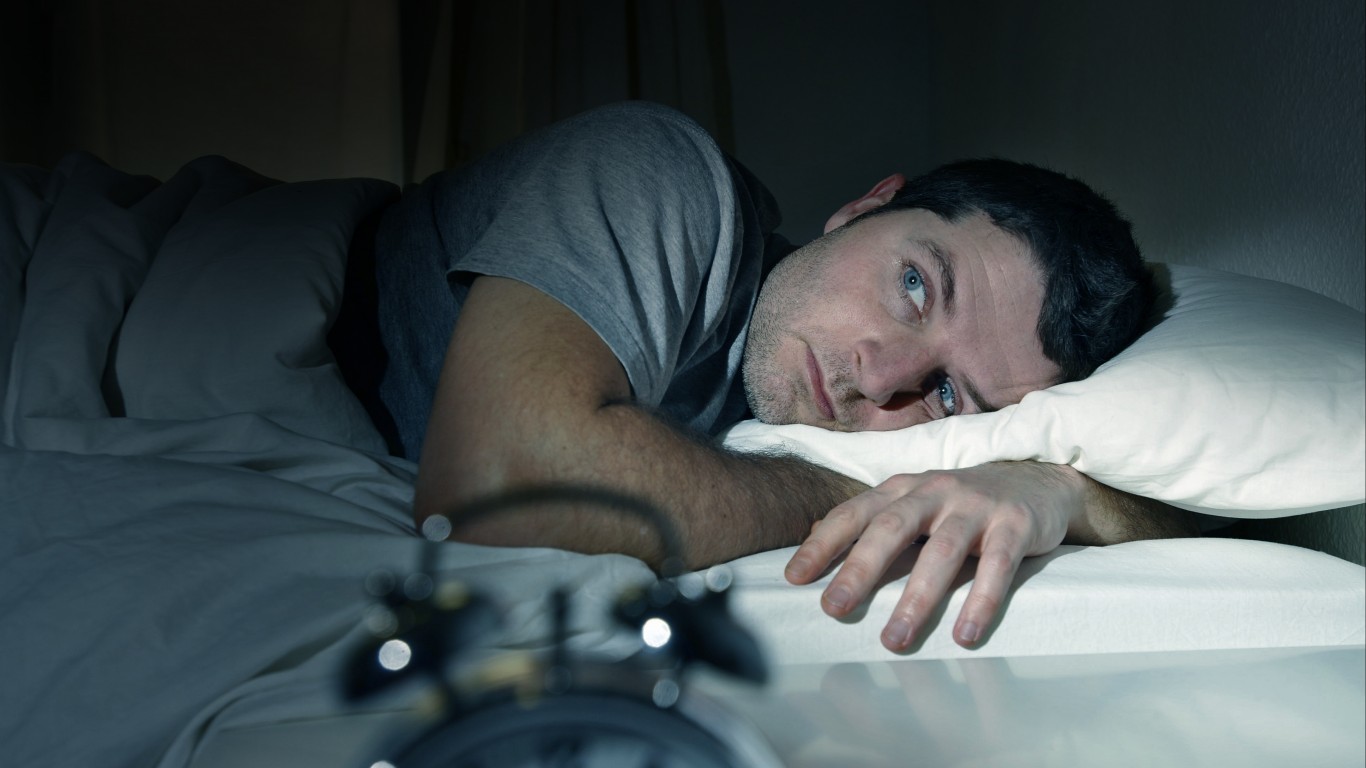Health and Healthcare
Study: The Poor Get Less Sleep, Leading to Greater Risk of Heart Disease

Published:
Last Updated:

According to a 2002 study of socioeconomic and behavioral influences on deaths from cardiovascular disease (CVD), about two-thirds of such deaths among the poorest quartile of the study’s population would not have occurred if the people who died had been among the richest quartile. The poor are at higher risk of heart problems than are the well off.
That’s probably no big surprise, but a new study based on data from four European countries and eight cohorts links the increased risk of CVD among the poor to lack of sleep. Chronic sleep deprivation has been associated with a higher risk of CVD because it disrupts several of the body’s physiological systems. While excessive sleeping also has been associated with CVD, other research indicates that a major depressive disorder is a strong predictor of excessive sleeping.
The study, published in Cardiovascular Research, noted that poor socioeconomic circumstances early in life affect sleep patterns in adults leading to “disrupted emotion regulation, which in turn has a negative impact on adult sleep.” According to the researchers, the new study found the father’s and the adult’s occupations were associated with abnormal sleep duration and that the disruption to sleep was more strongly associated with an adult’s occupation than with early socioeconomic status. Short sleep was more common than excessive sleep.
The sleep-duration problem facing people with lower-level occupations “may be related to the fact that individuals with lower grade occupations often have to combine several jobs, work in shifts, and live in noisy environments, thus experiencing greater levels of stress, altogether leading to sleep deprivation.” The researchers also suggest that the adult’s occupation directly affects poor sleep more than the father’s occupation and education, which “likely act through more indirect effects that have occurred in early life.”
Chronic sleep deprivation also puts people more at risk for coronary heart disease (CHD) and strokes. The researchers also looked at adjusted data that accounted for type 2 diabetes and obesity and found that the presence of either could function as an intermediate step between chronic sleep deprivation and eventual CHD or stroke. Here is a more thorough look at the damage that can happen due to lack of sleep.
Men exhibit a short sleep pattern more significantly related to their adult occupations than did women. The researchers noted that “these gender-related differences may be explained by additional sociodemographic and socioeconomic factors, such as the fact that low [socioeconomic status] women often have to combine the physical and psychosocial strain of manual, less paid jobs to that of numerous household responsibilities and stress, which eventually negatively affects their sleep and its health-restoring effects when compared to men.”
The researchers summarize their findings: “[S]hort sleep duration is a potential mechanism underlying the association between adult occupational position and CHD.” Another way of saying that is that the less you earn, the more difficult your life can be and that can affect your sleep, which in turn raises your risk for heart problems. Once you have the determination to improve your sleep because you know how crucial it is for overall health, you need to know the tricks that can help achieve a restful night’s sleep. Here are some ways to get a better night’s sleep.
Retirement can be daunting, but it doesn’t need to be.
Imagine having an expert in your corner to help you with your financial goals. Someone to help you determine if you’re ahead, behind, or right on track. With SmartAsset, that’s not just a dream—it’s reality. This free tool connects you with pre-screened financial advisors who work in your best interests. It’s quick, it’s easy, so take the leap today and start planning smarter!
Don’t waste another minute; get started right here and help your retirement dreams become a retirement reality.
Thank you for reading! Have some feedback for us?
Contact the 24/7 Wall St. editorial team.